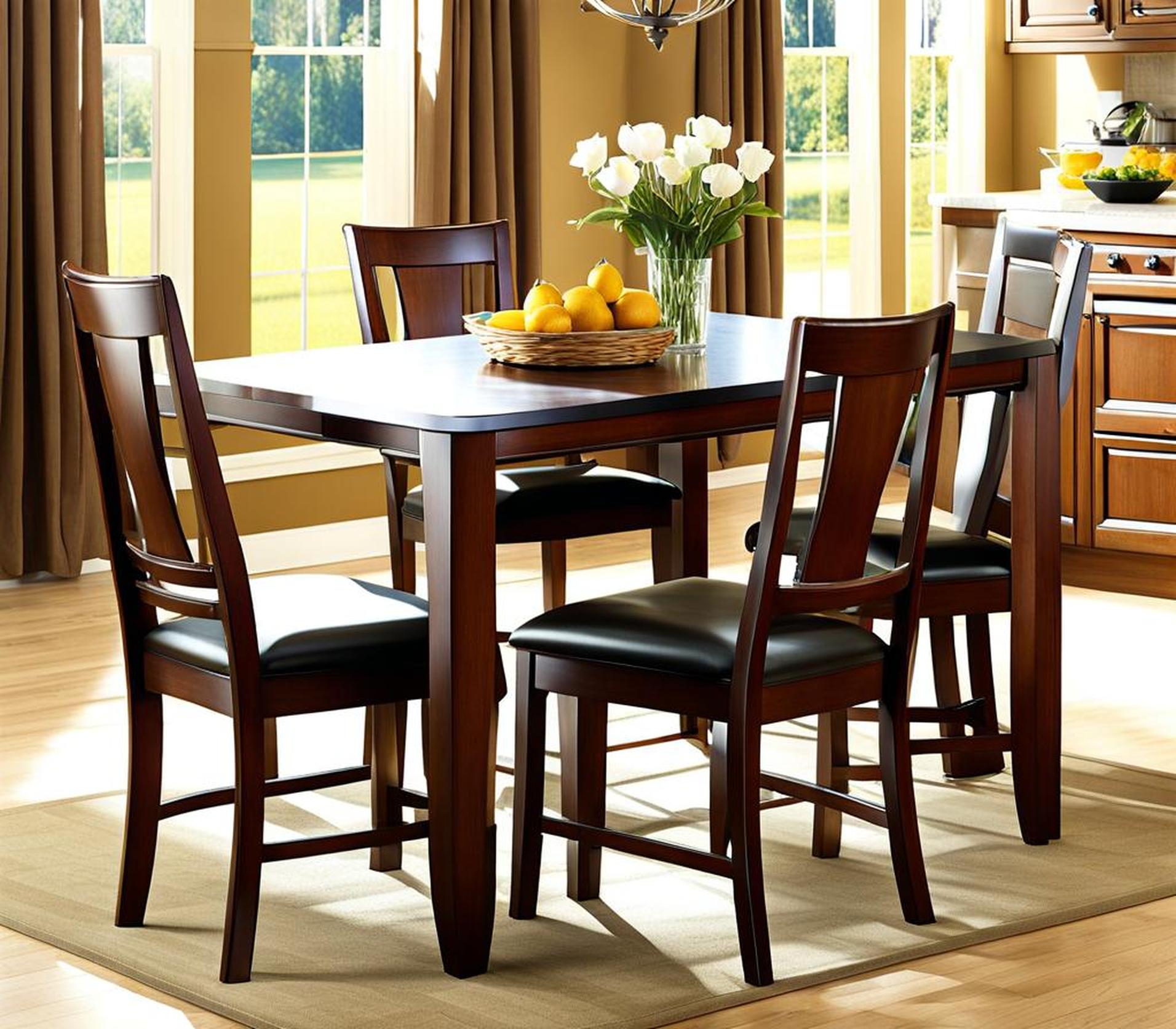As we age, choosing the right kitchen chair becomes increasingly important for safety, accessibility, and comfort. The correct chair can make mealtimes easier while reducing the risk of falls or injuries. When selecting kitchen chairs for elderly individuals, stability, durability, and adjustability should be key priorities.
Armrests, proper seat height, and cushioned seats are features that transform an ordinary kitchen chair into a sturdy, supportive seating option for seniors. Keep reading for our top tips to identify chairs that will provide seniors with the assistance they need during daily kitchen activities.
Focus on Adjustable Height Settings
A chair height that suits an elderly user’s needs is crucial for lower body comfort. Seat height directly impacts positioning when sitting down and standing up from a chair.

Chairs with adjustable leg extensions allow easy customization of height to fit an individual user. For proper ergonomics, an older adult’s knees should be at a 90 degree angle, with feet resting flat on the floor.
Look for minimum and maximum height settings between 17 to 20 inches to accommodate different users’ heights and abilities. Adjustable heights are also useful as physical needs evolve.
Consider Chairs with Removable Armrests
For elderly individuals with mobility limitations, removable armrests can be beneficial. They allow easier transfers and side-sliding into chairs, such as when using mobility aids like walkers or canes.
Detachable arms also facilitate getting in and out of chairs for those with hip, back, or knee problems. However, for stability getting in and out of the chair during normal use, fixed armrests are ideal.
Assess Weight-Bearing Capacity of Arms
A sturdy chair designed for seniors will have armrests constructed to support partial body weight. As people age, armrests often become mobility aids, used for leverage and assistance sitting down or getting up.
Test armrest sturdiness by pressing down firmly before purchasing. Metal or thick wood arms are best for grasping and supporting weight.
Maximize Seating Comfort and Safety
Chair seat materials and design directly impact comfort for elderly users during extended seating at mealtimes. Prioritize chairs with padded cushions and contoured seats to prevent pain.
Cushioning helps distribute body weight evenly and reduce pressure points that could lead to sores after prolonged use. Channeled seat pads and lumbar support also encourage better posture and spinal alignment.
Chairs sized for kitchen tasks, with seat depths around 16-18 inches, allow feet to rest firmly on the floor. This provides stability and security getting in and out of the chair.
Select Durable, Easy-Clean Materials
Since kitchen chairs get extensive daily use, durability and easy maintenance are vital. Check product descriptions to ensure cushions and covers can be wiped clean as needed.
Moisture-resistant vinyl or faux leather upholstery withstands spills and stains. Chrome, powder-coated steel, or solid wood legs and frames resist chips and scratches from regular use.
Avoid very plush upholstery or intricate patterns, which trap food and dirt in crevices. Prioritize longevity and practicality over stylish designs.
Focus on Safety and Stability
A sturdy supportive base prevents tipped-over accidents that could cause injuries. Chairs with wide side legs spanning 18 inches or more are ideal for stability.
Rubber caps on chair legs grip floors securely. Rounded leg bottoms slide more easily, so pay close attention to leg and wheel specifications.
Wheels or glides make moving chairs easier but can compromise security. Opt for wheelchairs with locking mechanisms to prevent unwanted movement when sitting down or getting up.
Look for Low-Maintenance Materials
Since seniors may have limited mobility or difficulty with bending and stooping, easy-clean chairs are essential. Those with removable, machine-washable seat covers simplify maintenance.
Moisture-resistant and antimicrobial vinyls resist stains and odors. Look for upholstery designed to repel liquid, food particles, and dirt.
Regularly wipe chair surfaces with mild soap and water to keep germs at bay. Check manufacturer instructions for safe cleaning methods.
When selecting kitchen chairs for the elderly, stability, durability, comfort and adjustability should take priority. Focus on design features like:
- Adjustable height legs
- Supportive, weight-bearing armrests
- Padded, contoured seats
- Lumbar support
- Non-slip chair legs
- Locking wheels for safety
Choosing chairs with these characteristics will provide elderly individuals with safe, comfortable seating during daily kitchen activities, improving accessibility and quality of life.
